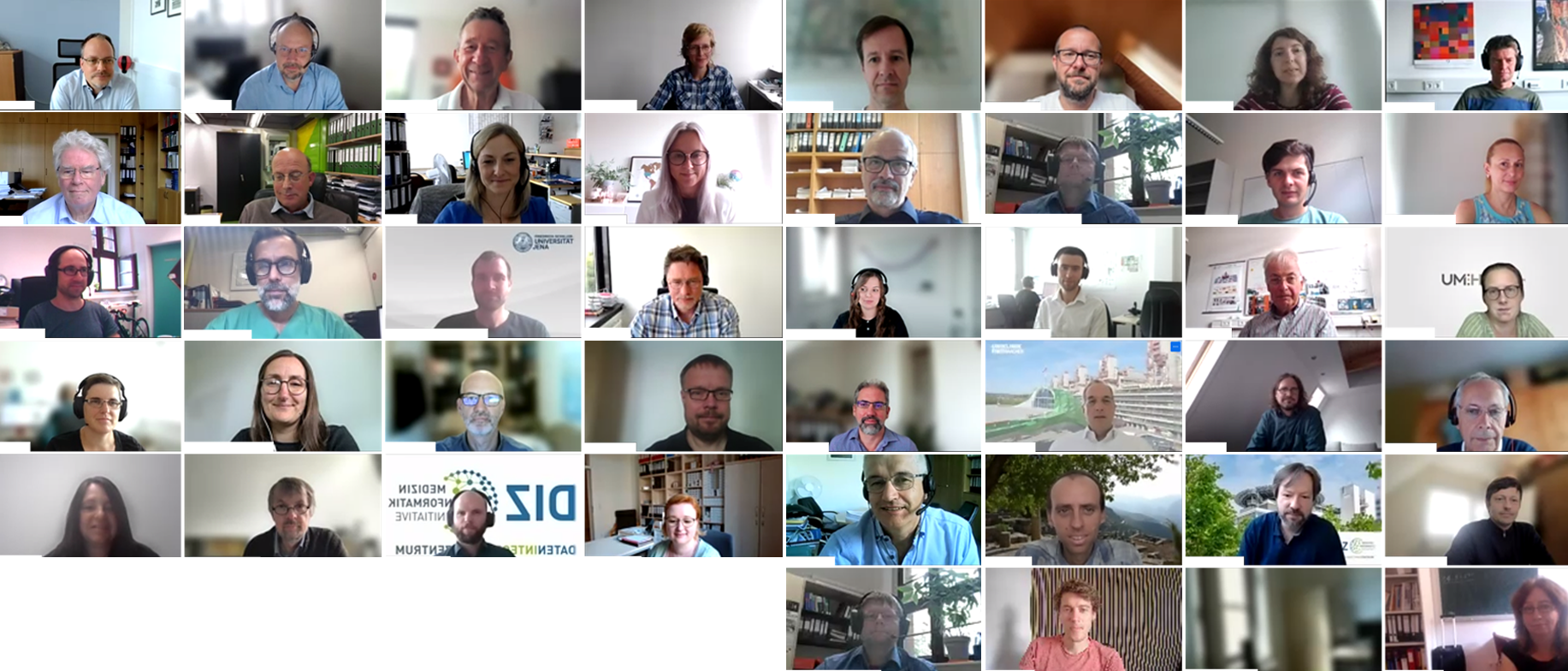
SMITH Closed Meeting: Strategically developing cooperations
On August 30th, the third SMITH closed meeting of this year took place. More than 80 employees from all sites participated in the web conference. The main topics were the status quo in the Data Integration Centers (DIC) and their strategic orientation under the cooperation with the Network University Medicine (NUM). Prof. Dr. Markus Löffler, head of the SMITH Consortium, emphasized the benefits of the DICs at the opening. “The Data Integration Centers are not only data administrations, they are significant tools for research.” Each DIC should be able to support research for local and external users. Similarly, he said, it is essential to keep in mind the clinical utility of the infrastructure built and to operate in interdisciplinary collaboration. Cross-initiative collaborations are the focus of the expansion and extension phase of the Medical Informatics Initiative (MII). A central cooperation exists with the Network University Medicine (NUM), which has been responsible for funding the Data Integration Centers (DIC) established as part of the MII since January 1st, 2023. Against this background, it will be an essential task in the coming months to accompany a possible continuation of the DICs within the framework of NUM and to define core tasks as well as additional modules of the institutions, Professor Löffler explained. Despite the change in the funding situation, the further development of the DICs will continue to be carried out by the tried and tested structures of the MII. The design of the interfaces between NUM and MII is proving to be a challenging task.
In this context, the heads of the Data Integration Centers established in SMITH gave an overview of their experiences and needs that have arisen from the work to date. It became clear that a considerable number of the requests received for data use projects could be successfully implemented. However, there is also a significant number of project requests that cannot be realized for various reasons. The main reasons are personnel and capacity bottlenecks, but also infrastructural problems. Prof. Dr. Toralf Kirsten, head of the Medical Informatics Center at the University of Leipzig Medical Center, emphasized in his presentation on “Lessons Learned” that the quality of the data and the services provided also plays a decisive role. Data scientists, he said, depend on data in a usable format as well as sufficient metadata to fully understand and effectively use the information. The most pressing needs of data users would have to be understood, lived, and implemented in the DICs. It would be necessary to build competence and establish uniform data quality. In the future, the DICs will have to intensify their cooperation and operate more across locations in order to be able to cover all requirements.
Further topics of the closed meeting included the organizational status of the planned online learning platform “MII-Academy”, first evaluations of the clinical use cases HELP and ASIC as well as a report from the module 2b project “fit4translation” of the MII, a competence and consulting platform for the development of clinical decision support systems in the context of the Medical Device Regulation (MDR).
The next SMITH closed meeting will be held on November the 28th – 29th, 2023 at the Albertina University Library in Leipzig, Germany.

